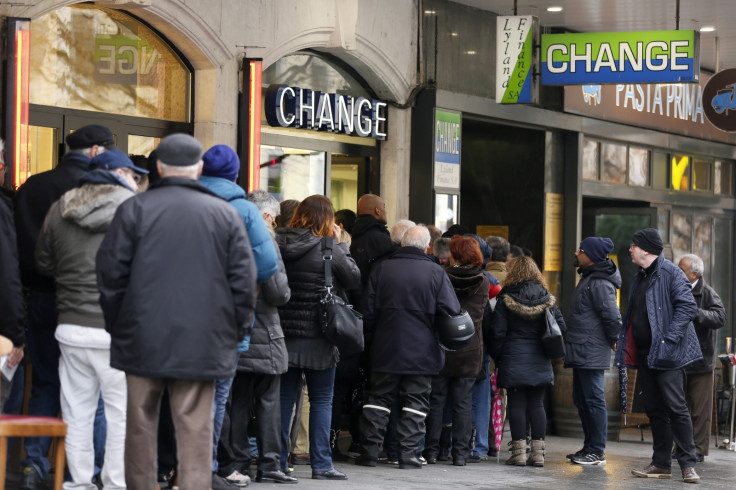SNB's shock Euro abandonment will prompt countries to leave the currency union

The euro has been abandoned by Switzerland.
Switzerland is of course not a member of the single currency but the Swiss National Bank's (SNB) decision yesterday (15 January) to remove the enforced ceiling of 1.20 Swiss franc per euro essentially demonstrated the tax haven country's complete loss of faith in the currency that it has been pegged to for the last three years.
The Swiss franc has risen to around 15% in value against the euro since the SNB move that shocked markets globally.
In the world of foreign exchange, a 2% rise in a single day is seen as a massive jump, to put the 15% rise into context.
What's the cause?
The most pressing and unspoken reason for the SNB's decision is that in order to maintain a low Swiss franc against the euro, the SNB had to sell its franc reserves and buy euros.
This led to large increases on the euro reserves they held. As any individual might have done, the SNB decided to cut its losses on the euro and abandon what they undoubtedly see as a sinking ship.
The SNB brought in the currency ceiling against the euro in 2011 due to overwhelming demand on the Swiss franc as a safe-haven currency, causing the price of the currency to rise steeply, which seriously threatened the competitive strength of Swiss exporters.
The impact of computers
The massive exchange rate movements after the SNB decision have without doubt been largely amplified by algorithmic trading.
Financial markets are increasingly dependent on decisions processed through computers and algorithm, rather than decisions made by humans.
When a central bank decides to change policy, by decreasing the interest rate for instance, thousands of computers globally react in a fraction of a second, creating a wave of selling and buying positions.
Short-term effects
First, the buying power of Swiss clients has increased sharply, so it will be easier to sell to Swiss clients and increase market share.
On the contrary, if a company or individual wants to import anything from Switzerland, it will be much more expensive, so they are left with three main choices: pay more; renegotiate fees with the Swiss supplier; or look for alternative suppliers outside Switzerland.
If you think about private individuals, Switzerland is a tax haven that attracts a lot of money from high-net-worth people globally.
Many people holding funds in Switzerland in Swiss francs will have earned a lot of money because of the exchange rate jumps, but European citizens holding mortgages in CHF will have just seen their costs increase by 15%, making the repayments that much more expensive.
Problems in the long term
2015 will go a long way to determining the future of the single currency.
First, there is the controversial programme of quantitative easing (QE).
QE would see investors flee from the euro to park their money somewhere safer. Many see it as the last throw of the dice to rescue the Eurozone, by a central bank out of ideas.
Added to this, the euro faces Greek and Spanish elections this year, whose results may well see far-left, anti-austerity parties assume power.
The Spanish political establishment, and the European Union will nervously look to the Greek election later this month as an indicator of what may come for Spain at the end of the year.
Switzerland has essentially left the euro and it may not be the last country to do so. If the SNB has taught us anything, it is to expect the unexpected.
Philippe Gelis, is the CEO and co-founder Kantox.
© Copyright IBTimes 2024. All rights reserved.






